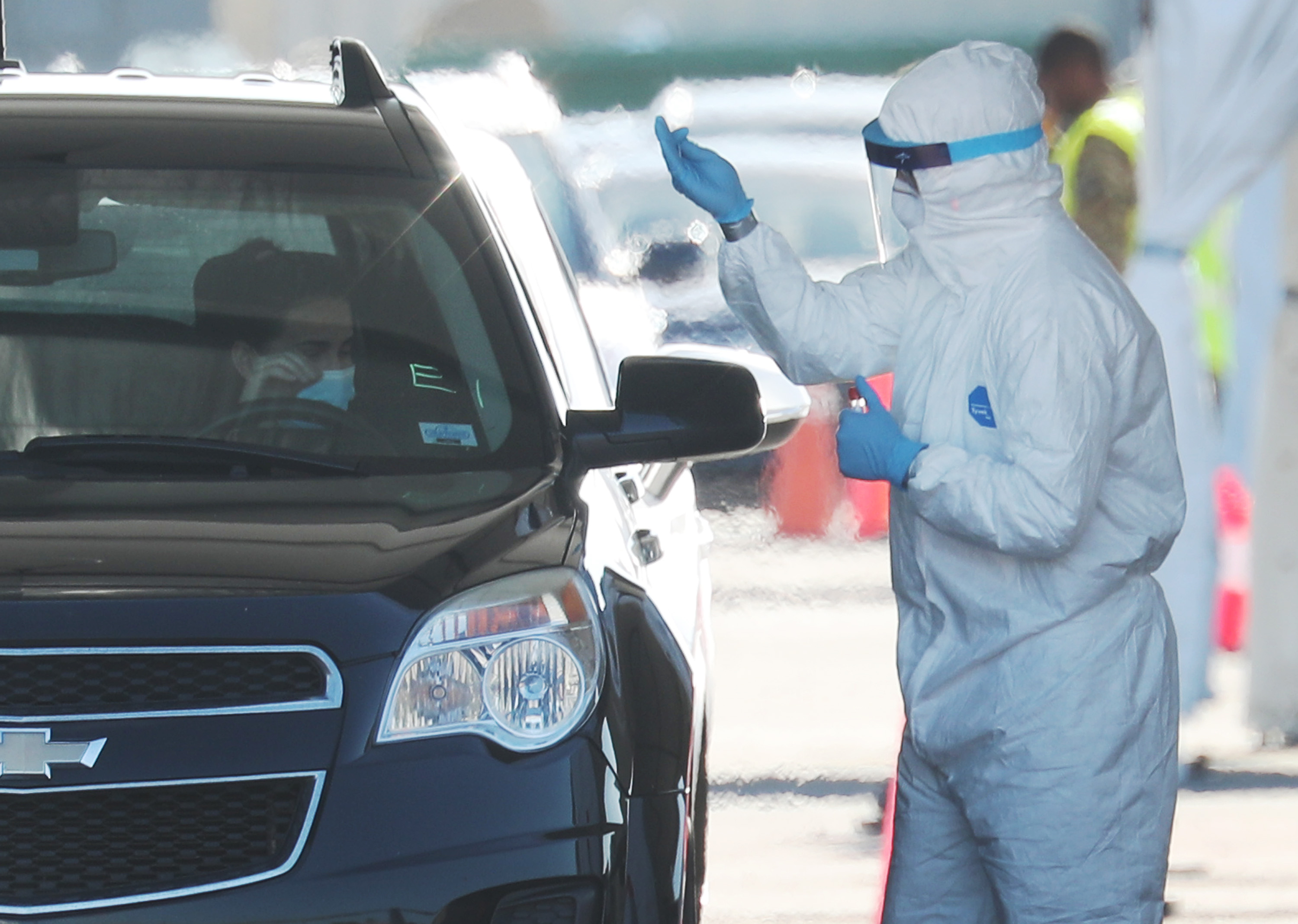Experts warn as many as 1 in 3 coronavirus test results may be incorrectly negative


A free daily email with the biggest news stories of the day – and the best features from TheWeek.com
You are now subscribed
Your newsletter sign-up was successful
An alarming new report by The Wall Street Journal suggests that nearly one in three patients who are infected with COVID-19 receive incorrectly negative test results. "A false negative is problematic because it tells the patient they don't have the virus," Dr. Craig Deligdish explained to the paper.
The estimate about the incorrect results is based on limited data, but the implication that tests may be far from accurate is worrisome. As Deligdish observed, it means that people who've been reassured they are not contagious are likely going forth and spreading the disease to others.
Health care experts additionally told The Wall Street Journal that part of the problem with the tests is how fast they've been approved. "The thing that is different this time is most of these tests are going through a really rapid validation process," said Ohio State University epidemiologist Bill Miller. "As a result, we can't be completely confident in how they will perform." Other doctors have already picked up on the faulty results; in New York City, the center of the U.S. outbreak, "a negative is not clearing anybody who is symptomatic," one emergency room doctor said.
The Week
Escape your echo chamber. Get the facts behind the news, plus analysis from multiple perspectives.

Sign up for The Week's Free Newsletters
From our morning news briefing to a weekly Good News Newsletter, get the best of The Week delivered directly to your inbox.
From our morning news briefing to a weekly Good News Newsletter, get the best of The Week delivered directly to your inbox.
New guidelines to sick Americans asks that if you have coronavirus symptoms, assume you have COVID-19. "Research coming out of China indicates that the false-negative rate may be around 30 percent," writes The New York Times' Harlan M. Krumholz. "Some of my colleagues, experts in laboratory medicine, express concerns the false-negative rate in this country could be even higher."
Curiously, it doesn't seem to go the other way. The Times adds, "the tests appear to be highly specific: If your test comes back positive, it is almost certain you have the infection."
A free daily email with the biggest news stories of the day – and the best features from TheWeek.com
Jeva Lange was the executive editor at TheWeek.com. She formerly served as The Week's deputy editor and culture critic. She is also a contributor to Screen Slate, and her writing has appeared in The New York Daily News, The Awl, Vice, and Gothamist, among other publications. Jeva lives in New York City. Follow her on Twitter.
-
 The Olympic timekeepers keeping the Games on track
The Olympic timekeepers keeping the Games on trackUnder the Radar Swiss watchmaking giant Omega has been at the finish line of every Olympic Games for nearly 100 years
-
 Will increasing tensions with Iran boil over into war?
Will increasing tensions with Iran boil over into war?Today’s Big Question President Donald Trump has recently been threatening the country
-
 Corruption: The spy sheikh and the president
Corruption: The spy sheikh and the presidentFeature Trump is at the center of another scandal
-
 Trump HHS slashes advised child vaccinations
Trump HHS slashes advised child vaccinationsSpeed Read In a widely condemned move, the CDC will now recommend that children get vaccinated against 11 communicable diseases, not 17
-
 FDA OKs generic abortion pill, riling the right
FDA OKs generic abortion pill, riling the rightSpeed Read The drug in question is a generic version of mifepristone, used to carry out two-thirds of US abortions
-
 RFK Jr. vaccine panel advises restricting MMRV shot
RFK Jr. vaccine panel advises restricting MMRV shotSpeed Read The committee voted to restrict access to a childhood vaccine against chickenpox
-
 Texas declares end to measles outbreak
Texas declares end to measles outbreakSpeed Read The vaccine-preventable disease is still spreading in neighboring states, Mexico and Canada
-
 RFK Jr. shuts down mRNA vaccine funding at agency
RFK Jr. shuts down mRNA vaccine funding at agencySpeed Read The decision canceled or modified 22 projects, primarily for work on vaccines and therapeutics for respiratory viruses
-
 Measles cases surge to 33-year high
Measles cases surge to 33-year highSpeed Read The infection was declared eliminated from the US in 2000 but has seen a resurgence amid vaccine hesitancy
-
 Kennedy's vaccine panel signals skepticism, change
Kennedy's vaccine panel signals skepticism, changeSpeed Read RFK Jr.'s new vaccine advisory board intends to make changes to the decades-old US immunization system
-
 Kennedy ousts entire CDC vaccine advisory panel
Kennedy ousts entire CDC vaccine advisory panelspeed read Health Secretary RFK Jr. is a longtime anti-vaccine activist who has criticized the panel of experts
